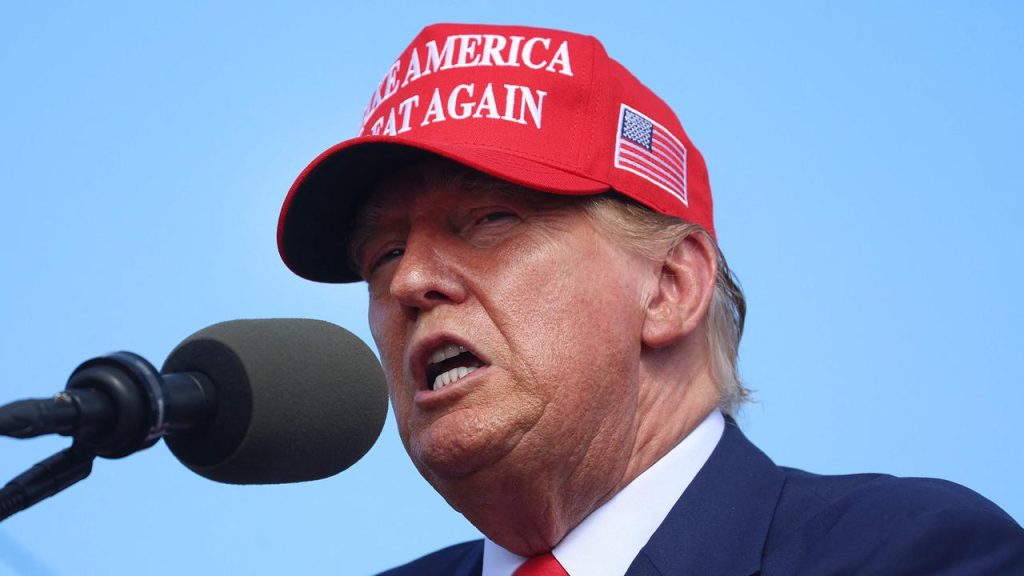
As Donald Trump secures his second term in office, African leaders have quickly offered their congratulations, with some hoping for renewed economic partnerships. Zimbabwe’s President Emmerson Mnangagwa expressed his willingness to work with Trump, while Nigeria’s Bola Tinubu voiced optimism about reciprocal economic relations between Africa and the U.S. However, the question remains: what will Trump’s second presidency mean for Africa?
Trade and Investment
Under President Biden, the U.S. emphasized its commitment to Africa, investing in projects like the Lobito Corridor, a crucial rail line spanning Angola, the Democratic Republic of Congo, and Zambia. Biden’s administration also pledged over $22 billion in investments in Africa. However, critics suggest that these efforts didn’t match the ambitions set out, and Trump’s stance on Africa remains unclear.
Trump’s protectionist “America First” policies have raised concerns that his second term could lead to a rollback of these investments. For example, the African Growth and Opportunity Act (AGOA), which allows eligible African countries to export goods to the U.S. duty-free, is set to expire in 2025. Trump had previously expressed opposition to renewing it. Furthermore, his proposed 10% income tariff on foreign-made goods would likely increase the cost of African exports to the U.S., diminishing market access for countries like South Africa, a major beneficiary of AGOA. Though some argue that Trump’s desire to counter China’s influence in Africa may push him to maintain some investment initiatives, the general trend suggests that African economies could face challenges under his leadership.
Aid and Foreign Policy
The U.S. has long been a major donor of aid to Africa, contributing almost $3.7 billion in the most recent financial year. However, Trump’s first administration repeatedly pushed for significant cuts to foreign aid, including health and democracy promotion programs in Africa. While Congress blocked many of these cuts, the situation may change if the Republicans secure greater control in Congress after the upcoming elections.
One of the most prominent U.S. aid programs in Africa is the President’s Emergency Plan for AIDS Relief (PEPFAR), which has provided crucial support in the fight against HIV/AIDS. There are concerns, however, that Trump, who has historically been critical of abortion services, might close PEPFAR or reduce its scope.
Immigration
Trump’s stance on immigration remains a point of contention. During his first term, he imposed strict measures that disproportionately affected African nations like Nigeria, Sudan, and Eritrea. As of 2023, the number of African migrants at the U.S.-Mexico border has increased dramatically, with more than 58,000 arriving in the first half of the year.
Trump has made it clear that his administration will prioritize deportations, and the African diaspora in the U.S. is worried about increased scrutiny and discrimination under his leadership. In Kenya, for instance, migrants fear that Trump’s return to the presidency could lead to a harsher immigration policy that targets East African nationals.
Security and Geopolitics
Africa’s security situation has also been a growing concern, especially as Russia has increased its influence on the continent. Russia’s military involvement in countries like Mali, Niger, and Burkina Faso—aimed at combating jihadist groups—has raised alarms in Washington. While Trump’s relationship with Russia has been the subject of speculation, it’s unclear how he would respond to Moscow’s growing influence in Africa.
However, Trump has acted in Africa’s security interest before, notably approving the sale of Tucano jets to Nigeria to fight Boko Haram. Though he is known for his transactional approach to foreign policy, his administration could offer strategic support to African nations, especially if it aligns with U.S. interests, such as countering Chinese and Russian influence.
What to Expect from Trump’s Second Term
Trump’s foreign policy toward Africa will likely be shaped by his “America First” ideology, balancing trade and security concerns with a desire to reduce the U.S.’s global footprint. While some investments in Africa may persist—especially those countering China’s rising influence—his stance on foreign aid and immigration could pose significant challenges for African nations.
In short, Africa’s future under Trump will likely be marked by a more transactional relationship, with a focus on trade agreements that prioritize U.S. interests and strategic partnerships. However, the potential for aid cuts, a tougher stance on immigration, and a fluctuating commitment to African security initiatives mean that Africa must prepare for an uncertain future under his leadership.
As W Gyude Moore, a fellow at the Center for Global Development, put it, “Trump is very unorthodox,” leaving African countries with much to consider as they navigate a second term of his presidency.








